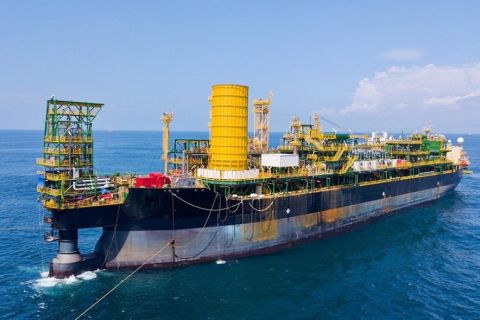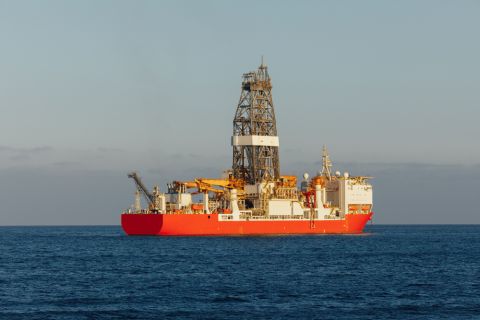People are our biggest assets, or so executives, management gurus and headhunters keep insisting-so, why are we squandering them? Their numbers are depleting just like an old reservoir. Virtually every investor who spoke at our conference on private capital in June said that when evaluating companies, he looks first at the people-their track record and business plan. Repeatedly, speakers said people are the main asset in the oil and gas business. Ken Hersh of Natural Gas Partners summed it up well: "When we invest in a company, we lock arms with management and go on down the road, so we pick people. Besides, the assets are always depleting. Chemistry is very important, because people are the ones who create value with the assets." There is a huge problem lurking within this generally sound mindset. If an investor has confidence only in people with good track records, then it will be dealing with a shrinking universe. In 10 years, most of the good-track-record people will be 55 to 60 and probably retired-if not downsized. Who is recruiting and training younger people to bring fresh thinking to the business? Where are newcomers going to get advice and judgment from the pros who know where the bodies are buried? For years during the disastrous mid-1980s, big oil firms and service companies not only laid off thousands, they did not recruit on campuses to replenish the talent pool. Then as now, high-quality freshmen were not enrolling in geology and petroleum engineering. The detrimental effects of this are starting to be felt. At last December's Arthur Andersen energy symposium, a poll of attendees said their main concern (other than commodity prices) was the lack of good drilling prospects. That is a function of Mother Nature, to be sure, but if a company has cut out half its exploration staff, what does it expect? Prospects don't spring unbidden from the ground. Research firm John S. Herold Inc. conducted a study with frightening results that put some meat on the bones of industry fears. Since 1982-the peak of U.S. oil employment and rig count-the 25 biggest oil companies have cut more than 1 million employees, according to Herold. Since 1988, the same 25 have cut their workforces in half-again. In 1999 alone, the top 10 companies cut 38,811 people. What's more, there are only 528 students enrolled in the nation's petroleum engineering schools, down 28% in the last 10 years. A majority of those are foreigners who probably will not remain here once they graduate. "The U.S. needs about 300 petroleum engineers a year, and we are producing about that many," says Charles Bowman, head of Texas A&M's petroleum engineering department. "Increasingly the industry asks us to graduate them ready-to-go, able to apply the newest technologies right away. It used to be that the majors offered extensive one- or two-year in-house training upon hiring. Now they do not." The fastest growing degree program at A&M today is a new one that combines a bachelor's in engineering with a master's in business administration. Why? Having a master's in engineering gets a grad another $4,000 in starting salary, whereas having an MBA gets that same person an extra $15,000. "This industry does not value a master's in petroleum engineering anymore," Bowman says. How long can this continue before we see one megamajor employing 100 decision-makers parked in a secret room somewhere, with everything they do outsourced through laptops to robots? Already there are rumors that Texas companies might hire rig crews from prisons. The other problem is that the remaining workforce is graying and may retire in the next 10 or 15 years-just when world demand will have soared from today's level. This industry will be asked to produce more oil and gas, but it will have to do it with fewer experienced people. The Herold study found that fully 70% of the Houston Geological Society's 4,229 members are ages 40 or older. A scant 6% are in their 20s. Texaco also has made presentations showing that the majority of its professional workforce is in its 40s, 50s and early 60s. Petroleum engineer and independent-oilman Curtis Mewbourne of Tyler, Texas, isn't taking any of this lightly. He recently donated $6 million to his alma mater, the University of Oklahoma, and not for bricks and mortar. Rather, the money will be used by the petroleum engineering school (now named after him), to recruit students and give them hefty scholarships, pay guest professors from the industry, endow three teaching chairs, and buy state-of-the art equipment for classrooms and research facilities. Bravo. Next, suggests Tom Bandy, president of Production Access, E&P companies should spend some of their surging cash flow on image advertising on TV-to attract people to the industry and to reassure the public that we aren't scoundrels.
Recommended Reading
E&P Highlights: March 4, 2024
2024-03-04 - Here’s a roundup of the latest E&P headlines, including a reserves update and new contract awards.
Eni Finds 2nd Largest Discovery Offshore Côte d’Ivoire
2024-03-08 - Deepwater Calao Field’s potential resources are estimated at between 1 Bboe and 1.5 Bboe.
Subsea7 Awarded Sizable Contract in GoM
2024-04-12 - Subsea7 will install a flowline for Talos’ Sunspear development in the Gulf of Mexico.
Cronos Appraisal Confirms Discovery Offshore Cyprus
2024-02-15 - Eni-operated block partner TotalEnergies says appraisal confirms the presence of significant resources and production potential in the block.
Seadrill Awarded $97.5 Million in Drillship Contracts
2024-01-30 - Seadrill will also resume management services for its West Auriga drillship earlier than anticipated.





